
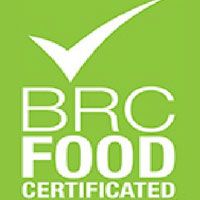
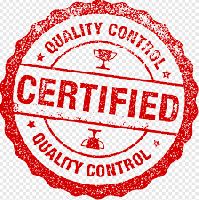

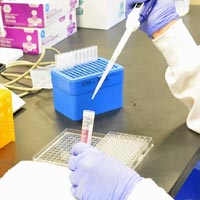


BRC Global Standards for Food Certification
Get Price Quote
brc global standard for food safety certification from sgs – comply with this standard for due diligence and supplier approval. achieving certification against the brc global standard for food safety proves your level of competence in hacpp, hygiene, food safety and quality systems. at the same time it demonstrates your commitment to consumer safety and stakeholder relations. we are approved by the brcgs to offer certification audits and as the world’s leading inspection, verification, testing and certification company, we have the global network to offer this service wherever you are based. the benefits of certification certification will help to satisfy customer expectations by demonstrating the plans, programs and systems that the standard demands: • a hazard analysis and critical control points (haccp) food safety plan to manage risks by following a step-by-step approach following codex alimentarius guidelines • senior management commitment to provide sufficient resources for achieving the standard • a quality management system that details the organizational and managerial policies needed to provide a framework for achieving the standard • a series of pre-requisite programs dealing with the basic environmental and operational conditions needed for the production of safe food and controlling the generic hazards covered by good manufacturing and good hygiene practices why choose brc global standard for food safety certification? the brcgs is recognized by the global food safety initiative (gfsi), a program that aims to harmonize international food safety standards with the support of the world’s top retailers and food manufacturers. gfsi recognition therefore means that you can use the brcgs to meet the requirements of these major players under a single, internationally recognized food safety management system.

Safer Food Better Business
20,000 - 300,000 Per Certificate
The Food Standards Agency (FSA) are no longer sending out hard copies of any Safer food, better business documents to businesses within England, all the documents are now only available from their website. These can be found by following the links below for the Diary and the Catering, Retail, Cuisine specific and Childminder packs. The FSA have developed all these in printer friendly versions so you can print them off easily. You are also now able to type / complete the Safe Method pages online, before printing them off. The website also allows you to save your typed input whilst working your way through the pack which means you do not need to complete all the Cooking, Cleaning, Chilling, Cross-contamination and Management sections in one go. We recommend however that you print off all your completed Safe Method pages and keep a paper copy in a file in your business. If you require a Diary refill, these are available from the website in 4 week sections. These can be printed off or saved onto your computer to complete as an electronic record. Be aware that if you keep an electronic Diary you need to save each month so that they are readily accessible to staff who are responsible for completing them. They should be easy to access on your computer and in a way that you can easily identify the date e.g. ‘Sfbb Diary 3 Safer food, better business files, including the electronic Diary are accessible for inspection by your Local Authority Food Safety Officer and whenever your food business is trading these files must be readily available on site at all times.
Looking for Food Certification Services Providers

SFDA Food Certification
Get Price Quote
SFDA Food is a conformity assessment programme developed by the Saudi Food and Drug Authority (SFDA) to ensure the quality and safety of food and beverage products imported into the Kingdom of Saudi Arabia.About SFDA The Saudi Food and Drug Authority (SFDA) was established under the Council of Ministers resolution no (1) dated 07/01/1424 H, as an independent body that directly reports to the President of Council of Ministers. The main purpose of the SFDA is to ensure safety of food and drugs for human and animal consumption, and the safety of biological and chemical substances, and electronic products, being imported into the Kingdom of Saudi Arabia. About SFDA FoodThe SFDA Food programme is a mandatory conformity assessment programme developed by the SFDA to ensure the quality and safety of food and beverage products imported into the Kingdom of Saudi Arabia.What are the main purposes of the SFDA Food programme? To insure the safety of the products before they are used by consumers The establishment of a global database to notify about all local imported cosmetics products A clearance authorization of the imported food products The development of specific standards for Food & Beverages What is regulated under the SFDA Food programme?To find out if your product is regulated under the SFDA programme, please consult our regulated product list page.About Cotecna As a trusted partner of the Kingdom of Saudi Arabia, Cotecna is accredited to help support the SFDA Food programme and perform conformity assessment of food and beverage products imported into the country in accordance with all regulations, rules and specifications approved by SFDA. As a leading provider of testing, inspection and certification services, we offer solutions to facilitate trade and make supply chains safer and more efficient for our clients. Our technical expertise combined with the superior quality of our services and our ability to anticipate our clients’ needs is what sets us apart. SFDA Food Certification ProcessExporting to Saudi Arabia? Let us guide you through the SFDA Food conformity assessment process, and the steps you need to take to get your food & beverage products certified for import into the country.Cotecna has been accredited by The Saudi Food and Drug Authority (SFDA) to ensure the compliance to the applicable standards of all regulated food products imported into the Kingdom of Saudi Arabia.The conformity assessment programme aims to ensure safety and security of food and feed, safety and security of pesticides and ease commercial traffic flow while maintaining safety of food and reinforcement of consumers and clients confidence in food control authority Step-by-Step Process The exporter / importer will have to fill out the Request of Certification (RFC) and Declaration of Conformity Once we receive your request, a dedicated and local coordinator will review your demand. Your coordinator will check all the necessary documentation and from that, define the scope of needs. When necessary and to comply with importing SFDA's regulations, your dedicated coordinator will guide you through the needed verifications and will schedule them (testing of samples, inspection and/or audit when required) After satisfactory results, Cotecna will issue the product certificate (valid one year) Routes for SFDA FoodTo assess the conformity of a shipment, the verification of conformity process will follow one of two levels of compliance, named “routes”. The choice of the route depends on the profile of the exporter. These are : Route A for exporters with infrequent shipments (Non registered products) : It involves pre-shipment inspection and pre-shipment testing of products. Physical inspection can be carried out to verify the labelling/markage, storage and other visual verification. Route B for regular exporters with homogenous products (Registered products) : This process involves product testing for compliance and the statement of Product Registration is valid for a year. Request a CertificationTo learn more about the SFDA Food programme, or to get a product certificate for your exports, please send us a request.SFDA Food Regulated ProductsFind out if your food products are a regulated product under the SFDA Food programme and what special requirements it is subject to before obtaining your Certificate Of Conformity. List of Regulated ProductsWe can accompany you in the issuance of your Certificate of Conformity (COC) for all Food Products you wish to import in Saudi Arabia including the mandatory following : All fruit and vegetables from Egypt All cheese products from Egypt All rice from Egypt All food products (Animal/Vegetable origin) from Jordan All Processed Vegetables and Fruits from India All Red Meat from India All Rice (Milled) from India All tea and its related products with a Sri Lanka origin Prohibited and Restricted ProductsThe initial list of food products under the scope does not include certain Products such as but, not limited to : Swine and its meat, blood and all extracted from it Frog meat Foodstuff and preparations from animal blood Wines and intoxicants that contain alcoholic substances Nutmeg fruit, seeds and powder Products including Pork and Pork products Labelling RequirementsAll food products need marking / labeling as per GSO 9 requirements. All the details of marking by product category will have to be available for specific food products.
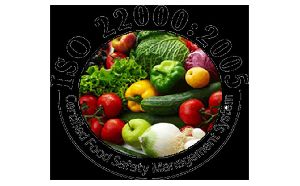
ISO 22000:2005 Food Safety Certification Services
Get Price Quote
Ideal Quality Certifications, as per the requirement of its clients, bring the best ISO 22000:2005 food safety certification. It is an essential requirement for all food chains and companies that manufacture & sell packaged food items. Ours is a team of professional employees who work in compliance with the industry standards. They are proficient in executing their duty on time and display excellent results. An ISO 22000:2005 certification is provided to all food chains that have recognized key elements. It also benefits them with improved documentation of processed food, dynamic communication on food safety issues by manufacturers, suppliers, and customers.What is HACCP? :Management Systems such as HACCP when granted by an International Registration Body provides organizations with the basic management requirements assisting in the implementation of effective food safety and good practices (cGMPs) and demonstrating to others. HACCP is endorsed by the United Nations “Codex Alimentarius? USA FDA - USDA, European Union, Canada, Australia, New Zealand, and Japan etc. We provide recognized ISO 22000 Certification Services in most competitive fee. ISO 22000:2005 specifies requirements for a food safety management system. In this, an organization in the food chain needs to demonstrate its ability to control food safety hazards to ensure that food is safe at the time of human consumption and it can be accomplished through the use of internal and/or external resources. It enable an organization to plan, implement, operate, maintain and update a food safety management system aimed at providing products that, according to their intended use, are safe for the consumer. Also, to evaluate and assess customer requirements, we demonstrate conformity with those mutually agreed customer requirements that relate to food safety, in order to enhance customer satisfaction.What is ISO 22000? : The International Organization for Standardization (ISO) has developed the ISO 22000 Food Safety Management Systems Standard. Officially called ISO 22000, Food Safety Management Systems - Requirements for any organization in the food chain, ISO 22000 is an international standard and defines the requirements of a Food Safety Management Systems covering all organisations in the food chain from “farm to fork? including catering and packaging companies. There has been a continuous increase in consumer demand for safe food. This has led to the development of numerous food safety standards. The growing number of national standards for food safety management has led to confusion. Consequently, there is a need for international harmonization and ISO aims to meet this need with ISO 22000. The standard combines generally recognized key elements to ensure food safety along the food chain including: interactive communication; system management; control of food safety hazards through pre-requisite programmes and HACCP plans; and continual improvement and updating of the management system. ISO 22000 is intended to define the requirements for companies that desire to exceed the regulatory requirements for food safety. Who should use the standard? :As food safety hazards may be introduced at any stages of the food chain, adequate control throughout the food chain is essential. Thus food safety is a joint responsibility that is principally assured through the combined efforts of all the parties participating in the food chain.ISO 22000 may therefore apply to, and not be limited to : Primary food producers through to food manufacturers, including food Retail and food service outlets Feed producers Transport operators and storage operators Producers of equipment and packaging material Producers of cleaning agents, additives and ingredients Benefits to users : Benefits for organizations implementing ISO 22000 include : Resource optimization - internally and along the food chain More efficient and dynamic food safety hazard control All control measures subjected to hazard analysis Better planning, less post process verification Improved documentation Saves resources by reducing overlapping system audits - how? Systematic management of prerequisite programmes Control focused on what is necessary Widely applicable because it is focused on end results Organized and targeted communication among trade partners (repeated below) Valid basis for taking decisions Increased due diligence Dynamic communication on food safety issues with suppliers, customers, regulators and other interested parties A systematic and proactive approach to identification of food safety hazards and development and implementation of control measures. Further benefits include : Confidence that the organizations which are implementing the standard have the ability to identify and control food safety hazards Provides a reference for the whole food chain Contributes to a better understanding and further development of Codex HACCP System approach, rather than product approach Fills a gap between ISO 9001 and HACCP Provides a framework for third party certification Auditable standard with clear requirements Suitable for regulators Provides potential for harmonization of National standards.

Haccp Certification Services
Get Price Quote
Hazard Analysis and Critical Control Points, or HACCP, is a systematic preventive approach to food safety from biological, chemical, and physical hazards in production processes that can cause the finished product to be unsafe and designs measures to reduce these risks to a safe level. In this manner, HACCP attempts to avoid hazards rather than attempting to inspect finished products for the effects of those hazards. The HACCP system can be used at all stages of a food chain, from food production and preparation processes including packaging, distribution, etc.

HACCP Certification
Get Price Quote
Hazard Analysis and Critical Control Points (HACCP) is a system which covers Food safety. It involves analysis of the Food processing and controls the unsafe food from reaching the consumers. Our services in the field of HACCP Certification are appreciated by clients everywhere. We are reputed for our expertise and knowledge in this area. We offer clients cost effective solutions for HACCP Certification. The HACCP Certification has several advantages. We have a wide client base that is pleased with our professional HACCP Certification services. Our team of Industry experts is very knowledgeable about the details regarding the HACCP Certification. Benefits of HACCP Certification Consumer is more confident about the productBetter communications between supplier and customerReduced regulatory contributionCovers the food chain from the producer to consumerReduced need for finished product testingReduces chance of contaminationDetect poor quality product during productionSaves resources that can be allocated elsewhere more effectivelyImprovements in raw material, storage and environmentFacilitates and enhances communication between the different sections of the food chain Offers Legal and moral obligation to produce food that is safe to eatApplicable to other aspects of food quality Principles of HACCP Certification Recognizing controls areas like raw materials, storage, processing, distribution and consumptionAnalysis of all kinds of hazards and contaminationSupervising these control areasBringing forth rectificationsKeeping updated recordsMethodical and frequent auditing of the system

Cleaning Hygiene Auditing Services
Get Price Quote
Cleaning Hygiene Auditing Services

halal certification
Get Price Quote
halal certification, gmp certifications, BIFMA Quality Certification Services

Haccp Certification Services
Get Price Quote
Haccp Certification Services, ROHS Testing, Rohs Certification Services

haccp certification service
Get Price Quote
haccp certification service, Iso 20000 Certification Services

haccp certification service
Get Price Quote
haccp certification service, FSSAI Consultant Service

HACCP Hazard Analysis And Critical Control Point
Get Price Quote
HACCP Hazard Analysis And Critical Control Point, ISO 31001 Risk Management
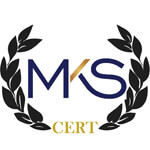
Halal Certification Services
Get Price Quote
Halal Certification Services, ISO Certification, CE Marking

Haccp Certification Services
Get Price Quote
Haccp Certification Services, ISO Certificate, NABL Accreditation Service

food quality certification service
Get Price Quote
food quality certification service

Industrial Hygiene Auditing Services
Get Price Quote
Industrial Hygiene Auditing Services, Industrial Safety Services